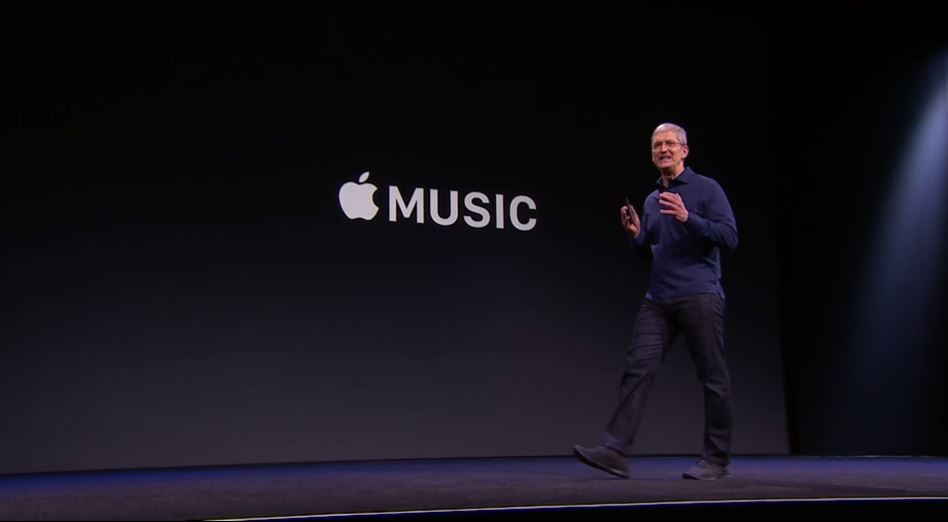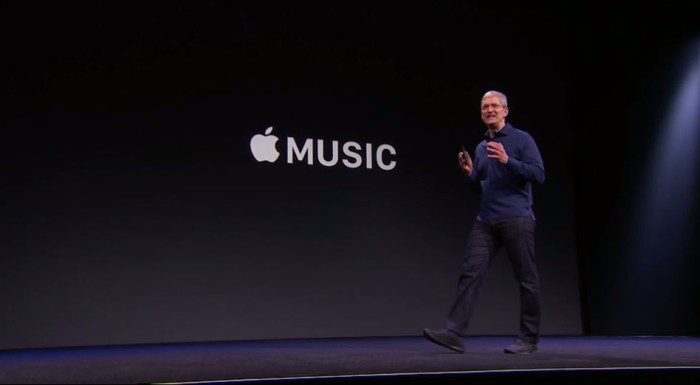Jay Z’s new Tidal, good old Pandora, the Google Play Music All Access that isn’t really accessible to all, the formerly Nokia-owned MixRadio that is just starting to think beyond its past life confined to devices just running Windows… The list of music streaming services is long. Even then, the barrier for entry is still low and there was something Beats owner Apple could still do to save the situation: its own streaming service, Apple Music.
As usual, the de facto king of music streaming services is Spotify so it is the yardstick with which everyone is going to compare Apple Music to at first. Never mind the presence of others including Apple’s homegrown iTunes Radio and the streaming service it now owns thanks to the Beats acquisition, Beats Music. The services I’ve mentioned above and others like Rdio, Grooveshark, Xbox Music, Last.fm, Rhapsody, iHeart Radio, Deezer and several dozen others that you’ve hardly ever heard of now face their biggest threat ever: Apple. The company. The brand. The hundreds of millions of iPhones, iPads and iPods sold so far. The iFans.
Apple’s entry into the music streaming service doesn’t spell doom on other players because it is the latest and the greatest but because of Apple’s secret arsenal: the hundreds of millions of iPhone and iPod users out there. These are what built the iTunes music store and disrupted the music industry over a decade ago. These are proven loyal customers as the queues whenever a new iPhone is announced have shown time and time again. These are the people that have driven the Apple Store’s unimaginable success: 100 billion app downloads. And Apple is not stopping there. Its music streaming service will be available on all platforms of note namely Windows and Android. Windows is the most popular desktop operating system in the world and Android is the most widely used mobile operating system in the world.
The killer move however is the approach Apple is taking with Music: availability. If you’re in a country like Kenya where Google Play Music is simply an application to play your locally stored tracks and not a streaming service and access to Spotify or MixRadio is still a rumour without the haggles of using VPNs and really want to stream music, there’s hardly been a mainstream alternative. Starting June 30th when Apple Music becomes available, that won’t be the case again. Apple Music is coming to over 100 countries. 100!
Even before it is available, there are already some downsides to Apple Music. Some of these are fancy and benign but we have to document them. Like the fact that the Beatles still won’t be part of the new music streaming service. If you follow matters music and admired the late Steve Jobs then you would remember how tasking it was to get the Beatles music to the iTunes store in the first place. Looks like we’re going to have take two of those negotiations only that magician Jobs won’t be around and it will take the genius of Tim Cook and his team which now includes the likes of industry insiders Dr Dre and Jimmy Iovine to make it happen. But this doesn’t stop all the millennials and young people out there like yours truly who would just want to Shake It Off for FourFiveSeconds.
The blessing in disguise in all this is that Apple reportedly managed to get Taylor Swift’s nod. Swift gets a special mention because last year she withdrew all her records from Spotify citing low financials and that has not stopped her from having one of her most successful years in her career in both 2014 and so far in 2015. The entire 1989 album is still a constant feature in most people’s pop playlists. Talking about artists, Drake made an appearance at WWDC15. Forget the long narration by Eddy Cue that got almost everyone dozing off, and the rapper’s narration of his humbling start to his now successful music career, he promised to release his next album exclusively on Apple Music. If you’re reading this now then it’s not too late.
The other big omission from Apple’s announcements concerning Music is the availability of a free tier. A free subscription. Like Spotify’s ad-ladden free subscription that limits subscribers to just 10 hours of music streaming in a given month. Apple is going all out to provide an exceptional music experience with an even bigger playlist (Apple Music boasts of over 30 million songs! More or less the same as every other music streaming service worth its name) at the same price ($9.99). Good riddance Tidal! Apple is also offering what I think is an awesome package: a family-share option for just $14.99 for upto 6 members. If you’re say 5 in your family or you’re in college so that means your roommates, that’s about $3 each a month or even less for access to one of the largest collections of music on the planet. College comes up for mention because Spotify has an unbeatable subscription for the college-going: just $4.99.
So while Apple Music is at the moment just another music streaming service backed by one of the most successful companies on the planet, it is at core a service featuring millions of songs with curated playlists by an A-list DJ that wants your attention as a music fan every time you stream and the attention of the particular artist whose songs you are streaming beyond just contributing something small towards their next Learjet purchase thanks to Connect. Connect is an Apple Music feature that will allow artists to interact with their fans and they can use it to post directly to Facebook and Twitter. No, Connect is not what the rumourmongers had in mind. Those days of the flopped Ping (if you can’t remember this then you’re too young, sorry) are long gone.
Will Apple Music also sense your mood and load the appropriate playlists like Google is doing and Spotify just started doing? Will there be exclusives from Drake, Swift and co that match what Bey, Jay and Kanye will be dropping on Tidal? Time will tell but for now, it is as attractive as anything else in the market and as the fanboys like saying, “it’s Apple!”. The best part about it? It’s free for the first three months.






























